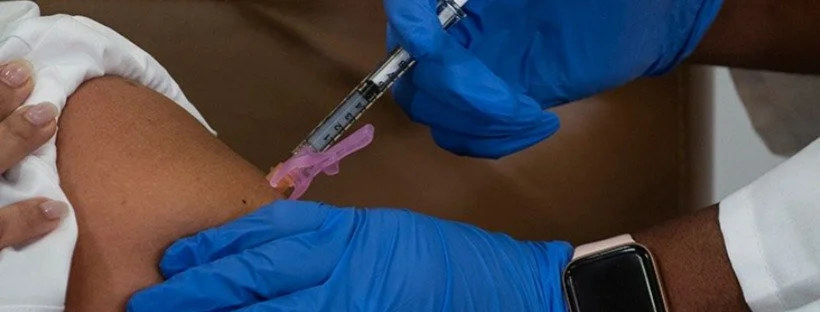India Covid-19 Vaccination Plan
By: Rhea Mahajan
There are 1.366 billion people that live in India - that means 171.9 people per square mile, a ridiculously large number compared to the United States’ population density of 13.5. Of course, having a large population comes with its challenges. Currently, the most pressing issue is how the Indian state plans to roll out a Covid-19 vaccine for all its citizens. But of course, in a country that has generated so many brilliant minds, it is no wonder they have quickly figured out a vaccine distribution plan that will work efficiently and effectively.
India is gearing up for one of the largest mass vaccination exercises beginning Saturday as it aims to inoculate more than 20% of its 1.3 billion people against Covid-19 in the first phase, states CNBC in their Jan 14th article. The government in New Delhi said it plans to inoculate some 300 million people in the first phase itself. This phase will include the vaccination of healthcare and other frontline workers. Then they will move on to people 50+ years, followed by adults under the age of 50, then lastly, children.
What helps with ensuring the smoothness of the plan is that everyone involved is very clear on how and what is going to take place. On their end, the government is efficiently preparing for the vaccination plan by sending out doses to vaccination centers all across the country and making sure production rates are at an all time high. For instance, starting Jan 26th, Indian airlines had begun to start delivering the first doses of vaccines to Delhi and other major cities, including Kolkata, Ahmedabad and Bengaluru, tweeted Civil Aviation Minister Hardeep Singh Puri. In addition, India has developed a digital portal website called Co-WIN Vaccine Delivery Management System which provides real-time information on “vaccine stocks, their storage temperature and individualized tracking of beneficiaries,” states the Indian health ministry. By guaranteeing that vaccination centers have enough doses by the initiation of the vaccine plan, the Indian government is helping make certain that the plan will be carried out flawlessly.
Moving onto the production rates and how fast the vaccine will be produced in India. In the past, vaccines usually required years of research and testing before reaching hospitals and clinics. They had to be proved safe and effective in animal studies, then in small trials in healthy volunteers, and finally Stage 3- testing by large trials in representative groups of people, including the elderly, the sick and the young. Covering all the bases, you see, to make sure that the jab is safe and effective for everyone. At present there are three prominent vaccine candidates being tested in India - and all three are very close to graduating from Stage 3. Of these 3, Covishield - the vaccine created by Oxford University and AstraZeneca - has been functioning successfully the most consistently.
In addition to having 3 potential vaccines, when looking at the vaccine production rates in India, it is clear that their fast-moving drug companies will be able to meet the demand of the vaccines once the plan is put into play. According to the Wall Street Journal, “Indian drug companies are big manufacturers of vaccines distributed worldwide, particularly those for low- and middle-income countries.” In particular, the Serum Institute of India (SII) has an agreement to manufacture one billion doses of the Oxford-AstraZeneca vaccine if it is approved for use for India. CEO of SII, Adar Poonawalla, said he expects to sell vaccines for about $13 per dose, a fairly reasonable price overall. Taking into account all the drug companies creating doses solely for India, it is clear that there won’t be much of a problem meeting the demand of the population.
And so, taking into account the fact that the Indian government is well-prepared and that Indian drug companies are the biggest producers of the vaccine and that some companies, like Serum, are solely dedicated to producing vaccines quickly for India itself, it is pretty clear that the vaccination plan will be a success.
